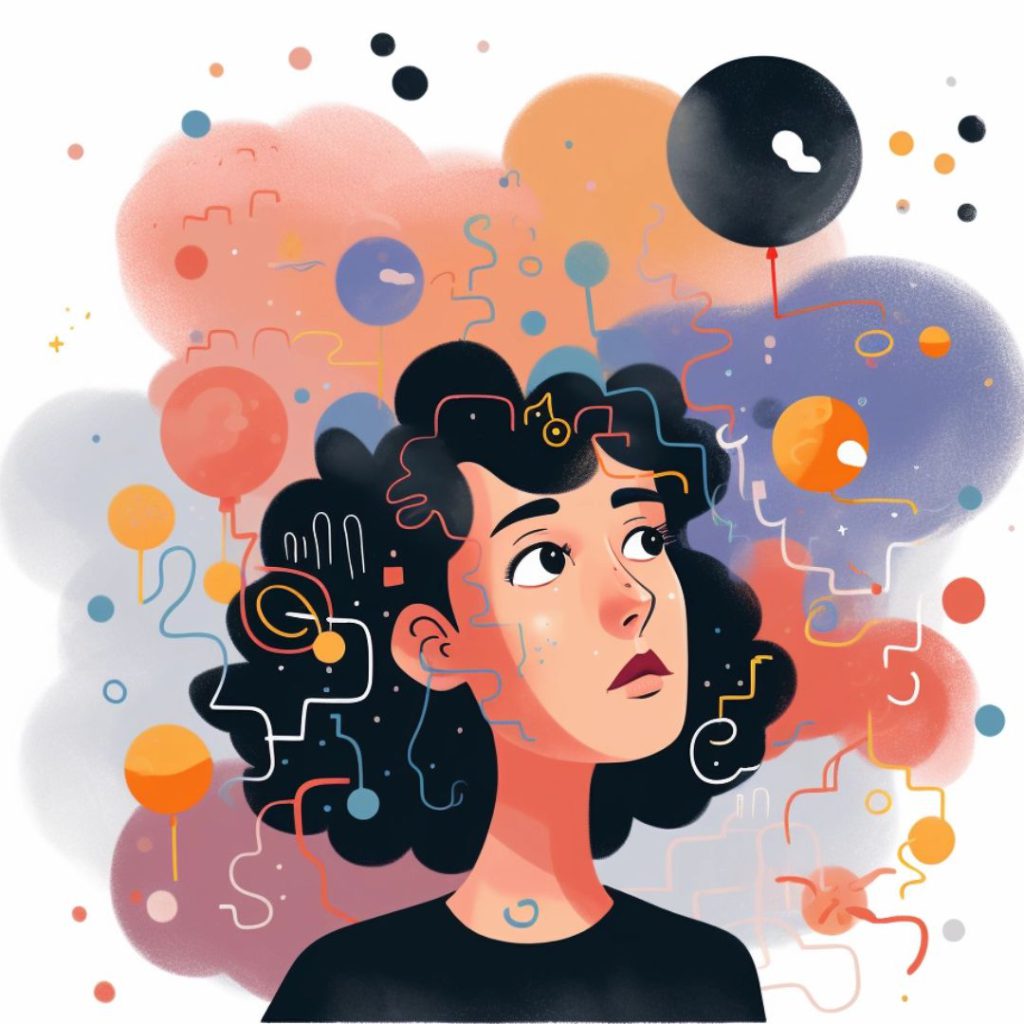ADHD and MBTI: Which MBTI Is Most Likely to Have ADHD?

Have you ever wonder how each person, with their unique personality type, may experience attention deficit hyperactivity disorder (ADHD)?
Is it really different for each individual? Or do all people experience the same thing?
Understanding the potential correlation between ADHD and MBTI (Myers-Briggs Type Indicator) can provide valuable insights into how individuals with ADHD may perceive and interact with the world around them.
By analyzing the possible connections between the cognitive functions of each MBTI type and the symptoms of ADHD, we can gain a deeper understanding of how personality may influence the experience of ADHD and how it can be managed effectively.
Overview of MBTI Personality Types
The Myers-Briggs Type Indicator (MBTI) is a personality assessment tool designed to categorize individuals into 16 distinct personality types based on their preferences in four dichotomies:
- Extraversion (E) vs. Introversion (I)
- Sensing (S) vs. Intuition (N)
- Thinking (T) vs. Feeling (F)
- Judging (J) vs. Perceiving (P)
| Read more: The Relationship between MBTI and Mental Illness
The MBTI is widely used for personal development, team building, and understanding interpersonal dynamics.
Here is a brief description of the 16 MBTI personality types:
| Personality Type | Description |
| ISTJ | Methodical, organized, detail-oriented |
| ISFJ | Compassionate, dependable, meticulous |
| INFJ | Insightful, creative, empathetic |
| INTJ | Strategic, analytical, visionary |
| ISTP | Adaptable, pragmatic, action-oriented |
| ISFP | Artistic, compassionate, flexible |
| INFP | Idealistic, creative, empathetic |
| INTP | Analytical, inventive, independent |
| ESTP | Energetic, spontaneous, resourceful |
| ESFP | Sociable, expressive, optimistic |
| ENFP | Enthusiastic, creative, empathetic |
| ENTP | Innovative, curious, adaptable |
| ESTJ | Practical, organized, decisive |
| ESFJ | Social, nurturing, cooperative |
| ENFJ | Charismatic, empathetic, diplomatic |
| ENTJ | Strategic, assertive, goal-oriented |
Do you know which Myers-Briggs personality types may be more prone to addiction?
Read to gain insights:
MBTI Addiction | Who is Most at Risk?
Key Characteristics of ADHD
ADHD is a neurodevelopmental disorder characterized by persistent patterns of inattention, hyperactivity, and impulsivity. It typically manifests in childhood and can continue into adolescence and adulthood. ADHD is categorized into three subtypes: Predominantly Inattentive, Predominantly Hyperactive-Impulsive, and Combined Presentation.
Key Characteristics
Inattention:
- Difficulty sustaining attention in tasks or play activities.
- Frequent careless mistakes due to lack of attention to detail.
- Forgetfulness in daily activities.
Hyperactivity:
- Excessive fidgeting, restlessness, or an inability to stay seated in appropriate situations.
- Inability to engage in activities quietly.
- Impulsivity, leading to hasty decision-making without considering the consequences.
| Discover: Is Echolalia a Symptom of ADHD?
Is There a Connection Between ADHD and MBTI Personalities?

While there is limited research directly linking ADHD traits to MBTI personality types, some theorists and individuals have explored potential connections based on the characteristics associated with both ADHD and MBTI preferences.
Here are some speculative connections that have been proposed:
| Learn more: ADHD in Children | Effective Managing Strategies + Real-Life Stories
Perceiving Types (P) and ADHD Traits:
People with ADHD are often characterized by a tendency to be spontaneous, flexible, and open to new experiences. These traits are often associated with individuals who have a preference for Perceiving (P) in the MBTI. Perceivers are generally more adaptable and less rigid in their approach to life.
Intuitive Types (N) and ADHD Traits:
The Intuitive (N) preference in the MBTI is associated with a focus on possibilities, ideas, and the future. Some individuals with ADHD may exhibit traits associated with intuition, such as a tendency to jump between ideas and a preference for novelty and innovation.
Extraverted Types (E) and ADHD Traits:
ADHD is often associated with hyperactivity and impulsivity, which could align with some characteristics of Extraverted (E) individuals in the MBTI. Extraverts are generally more outgoing, energetic, and social.
Thinking Types (T) and ADHD Traits:
ADHD individuals may sometimes exhibit impulsive decision-making and a focus on immediate outcomes, which could align with characteristics associated with Thinking (T) in the MBTI. Thinkers are often described as logical and objective.
How Does ADHD Affect Each MBTI Personality?
ADHD symptoms can vary widely among individuals, making it crucial to recognize the diverse ways in which these symptoms may present.
Certain ADHD symptoms may overlap with MBTI personality traits, potentially leading to challenges in diagnosis and differentiation. For example, restlessness or impulsivity might be misconstrued as personality traits rather than indicative of ADHD.
Here are common ADHD symptoms MBTI personalities may experience:
| MBTI Type | ADHD Symptoms |
| ISTJ | Difficulty staying organized, distractibility, forgetfulness |
| ISFJ | Tendency to procrastinate, difficulty prioritizing tasks, forgetfulness |
| INFJ | Overthinking, difficulty with time management, forgetfulness |
| INTJ | Procrastination, difficulty with task initiation, impatience |
| ISTP | Impulsivity, difficulty with long-term planning, restlessness |
| ISFP | Procrastination, difficulty concentrating, forgetfulness |
| INFP | Procrastination, difficulty with organization, distractibility |
| INTP | Procrastination, difficulty completing tasks, forgetfulness |
| ESTP | Impulsivity, difficulty with long-term planning, restlessness |
| ESFP | Procrastination, difficulty concentrating, impulsivity |
| ENFP | Procrastination, distractibility, difficulty with organization |
| ENTP | Impulsivity, difficulty completing tasks, forgetfulness |
| ESTJ | Difficulty with multitasking, impatience, forgetfulness |
| ESFJ | Procrastination, difficulty with time management, distractibility |
| ENFJ | Overcommitting, difficulty with time management, distractibility |
| ENTJ | Procrastination, difficulty with task initiation, impatience |
ADHD and MBTI: Coping Mechanisms
Individuals with certain personality types might develop coping mechanisms that mask their ADHD symptoms, making it challenging to identify the disorder. But it is also a tailored plan for MBTI personalities to manage ADHD symptoms.
| Personality Type | Coping Mechanism for ADHD |
| ISTJ | Structured routines and detailed task planning |
| ISFJ | Utilizing a support system and creating a nurturing environment |
| INFJ | Engaging in creative activities for self-expression |
| INTJ | Setting clear goals and utilizing strategic planning |
| ISTP | Embracing physical activities and hands-on tasks |
| ISFP | Incorporating artistic outlets for self-expression |
| INFP | Finding inspiration in projects aligned with personal values |
| INTP | Breaking tasks into smaller, manageable steps and focusing on one at a time |
| ESTP | Engaging in high-energy activities to maintain focus |
| ESFP | Utilizing social interactions as a motivation factor |
| ENFP | Incorporating variety in tasks to sustain interest |
| ENTP | Challenging the mind with diverse and stimulating projects |
| ESTJ | Creating organized to-do lists and prioritizing tasks |
| ESFJ | Collaborating with others to maintain a structured environment |
| ENFJ | Balancing social interactions with structured planning |
| ENTJ | Setting ambitious goals and creating a strategic plan |
Do you have ADHD and yet, can’t stop yourself from drinking coffee?
Does caffeine really make your ADHD worse?
Read now to gain insights:
Caffeine and ADHD | Does Coffee or Caffeine Good for ADHD or Make It Worse?
Which MBTI is Most Likely to Have ADHD?
There is no conclusive evidence to suggest a direct correlation between specific MBTI (Myers-Briggs Type Indicator) personality types and a higher predisposition to ADHD (Attention Deficit Hyperactivity Disorder). We can consider certain aspects of MBTI personality types that might align with ADHD symptoms to theoretically address MBTIs most likely to have ADHD:
- P Types (Perceiving): Individuals with P preferences (e.g., INFP, ENTP) tend to be more adaptable, spontaneous, and open-ended in their approach to tasks. The inherent trait of being easily distracted or prone to changing focus may align with certain ADHD symptoms.
- S Types (Sensing): S types (e.g., ISTJ, ESFP) generally prefer concrete details and practical applications. Theoretical speculation might suggest that individuals with a preference for sensing might find it challenging to sustain attention on tasks that require prolonged abstract thinking.
- Extroverted Types: Extroverted personality types (e.g., ESTP, ENFJ) might struggle with ADHD symptoms related to impulsivity and a constant need for external stimulation. Their inclination toward high-energy activities could align with hyperactivity aspects of ADHD.
- P Types Combined with Extroversion: Personality types with both P (Perceiving) preferences and Extroverted tendencies (e.g., ENFP, ESTP) may be more prone to ADHD-like behaviors due to their spontaneous and outgoing nature.
| Suggestion: Social Anxiety and MBTI | How Each Type Faces the Fear
Treatment Options for MBTI Personalities with ADHD

As we have mentioned above, some MBTI personality types may have their own specific coping mechanism for ADHD symptoms.
But…
In some cases, coping strategies may not work for managing ADHD.
There are treatment options available for controlling ADHD symptoms.
Here are the best treatment options for MBTIs most likely to have ADHD:
Structured Approaches for J Types:
Individuals with J preferences (e.g., INTJ, ESTJ) might benefit from treatments that involve structured planning and clear goals. Cognitive Behavioral Therapy (CBT) can provide practical strategies for organization and time management.
Creativity-Focused Approaches for P Types:
P types (e.g., INFP, ENTP) may respond well to therapies that allow for creative expression. Art therapy or mindfulness-based approaches can be incorporated alongside traditional treatments.
Social Support for Extroverted Types:
Extroverted personality types (e.g., ENFP, ESFP) might find support groups beneficial, providing a social environment to share experiences and coping strategies. Group therapy sessions can complement individual therapy.
Individualized Approaches for Introverted Types:
Introverted types (e.g., ISTJ, INFJ) may prefer individualized approaches. One-on-one therapy sessions, such as cognitive-behavioral therapy or coaching, could be effective.
Goal-Oriented Therapy for Thinkers (T Types):
Thinking types (e.g., ENTJ, ISTP) may respond well to goal-oriented therapy. Setting clear objectives and working on strategies to achieve them can be a central focus.
Empathy-Centric Approaches for Feeling Types:
Feeling types (e.g., INFP, ESFJ) might benefit from therapies that emphasize empathy and emotional support. Therapeutic modalities that explore emotions and provide coping strategies can be valuable.
Learn more…
HealWiser’s Last Piece of Advice
While some speculate about a link between ADHD and MBTI personality types, it’s crucial to note that ADHD can affect anyone, irrespective of their personality classification.
The exploration of ADHD and MBTI correlation aims to enhance self-awareness, helping individuals identify triggers and develop coping strategies.
For those dealing with ADHD, this post can be helpful in navigating daily life, fostering resilience, and seeking professional support when needed.
Sharing your experiences can provide valuable insights and emotional support. So…
…share your experience with Heal Wiser and others in the comments section below this post.






Hi, could you please explain more about INFJ?
THANKS FOR YOUR USEFUL articles
It would be our pleasure to help you.
You can gain more insights about INFJ Personality and the potential relationship between INFJ and mental health issues in this article:
https://healwiser.com/infj-mental-illness/
Dear Arash
Thanks a lot for your prompt reply.
Dear Arash
Thans a lot for your prompt reply.
Regards,
Ghader
We’re so delighted to hear that.
Thanks again